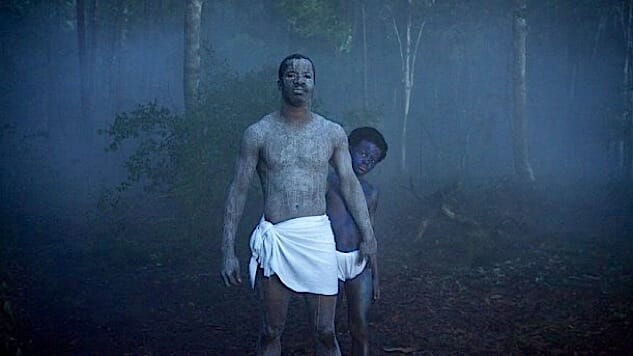How 2016 Will Redefine the Slave Narrative with Underground and The Birth of a Nation

Certain experiences in life are meant to be enlightening and educational, but never entertaining. Visiting the Holocaust Memorial Museum in Washington, D.C., or the Middle Passage exhibit in South Carolina, or even the post-Katrina lower ninth ward in Louisiana where the levies broke all fall under this umbrella. In many ways, these sites are as sacred as any holy place—when you enter them, you’re expected to reflect, and perhaps to weep.The last thing you’d do in these kinds of places is laugh out loud, or behave as if you are enjoying yourself in any way.
The same is true for slave narratives, in literature, film or TV. These stories are told in an attempt to share the important and tragic stories that shaped this nation. 12 Years a Slave is probably the most recent example of a slave narrative that was meant to be primarily difficult to watch. Even those of us whose parents made them watch Roots at a young age struggled to get through Steve McQueen’s adaptation of Solomon Northup’s memoir. And that’s how it’s supposed to be—or, at least, that’s how it’s always been.
Something changed, however, after Django Unchained—and the exquisite, near-spiritual experience that came with it for me and many others. There came the realization that a slave narrative could be something different. It’s almost blasphemy to say this, but I became convinced that, particularly from the angle of vengeance and/or rebellion, such stories could become entertaining. Of course, we still need films like 12 Years to tell a story with an unapologetically difficult framing (and Django was difficult as well)—these are accurate stories and no, there are not enough of them. But we also need to open up the doors for creative, risky approaches for these period pieces in TV and film that seek to enlighten, educate and—yes—entertain. The fact that I write such a sentence and exhale a sigh of relief that my mother (who was a professor of African-American history) is no longer of this world and, therefore, cannot chastise me for making such a statement is proof that such a move is dangerous, and goes against the way we’ve always done things before—what we’ve been taught about the proper way to pay homage. But this is why we need to pay close attention to WGN’s Underground series and Nate Parker’s Nat Turner biopic, The Birth of a Nation—because in 2016, a change is surely gonna come.
And not everyone will be on board. Underground (from creators Misha Green of Sons Of Anarchy and Heroes, and Joe Pokaski of Daredevil and Heroes) is going to come under attack for its unique style and presentation. The series premieres in March, and it’s taking every bit of my restraint to honor the press regulations and not reveal specific details this early on, but suffice it to say, this is not your mama’s (or my mama’s) Underground Railroad story. In a typical slave narrative the good guys and the bad guys are fairly simple to categorize—and then, of course, there’s often a white savior who arrives right on time. Underground naturally adheres to some of this, but it also deviates in surprising ways; and these deviations will offend some people, especially people of color.
-

-

-

-

-

-

-

-

-

-

-

-

-

-

-

-

-

-

-

-

-

-

-

-

-

-

-

-

-

-

-

-

-

-

-

-

-

-

-

-








































